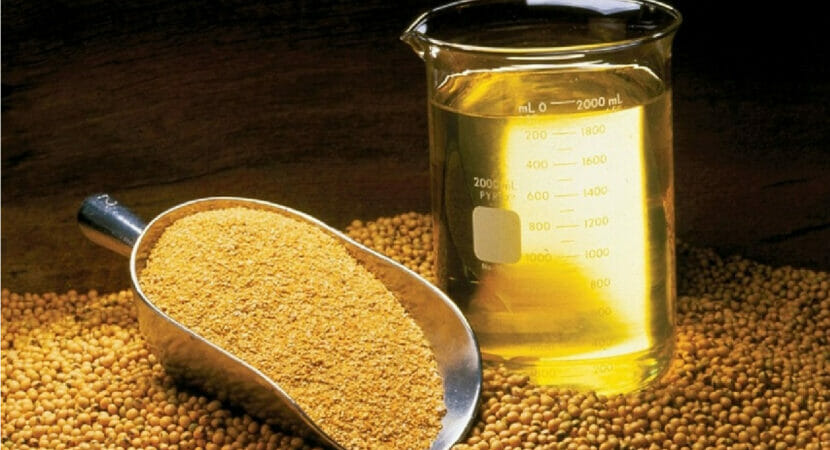
The new biofuel is made from soy processing and is nothing more than hydrated soy ethanol
Caramuru Alimentos, a renowned Brazilian company in the processing of soy, corn, sunflower and canola, is marking a revolution in the sector by announcing the commercialization of hydrated soy ethanol, produced in its industrial complex located in Sorriso, in Mato Grosso, according to the website Petronotícias.
This pioneering initiative comes in response to a global trend: according to the International Energy Agency (IEA), the demand for biofuels is expected to grow by around 22% over the next four years, totaling 35 million liters per year between 2022 and 2027. company president, Júlio Costa, expressed enthusiasm with the new undertaking, highlighting that this reflects Caramuru's ongoing commitment to seeking innovative solutions in the sector, expanding its operations and consolidating its position in agribusiness.
Soy ethanol: a breakthrough in the biofuel industry
The production of ethanol from soy is a pioneering achievement in the global biofuel industry, which traditionally uses raw materials such as sugar cane, corn or sugar beet. The process to create this revolutionary ethanol involves soy molasses, which is a by-product resulting from processing Soy Protein Concentrate (SPC).
This innovative process takes full advantage of the potential of the raw material, with high energy efficiency, following principles of circular economy to minimize environmental impacts. The industrial unit in Sorriso, with an annual capacity of 9,5 million liters of hydrous ethanol, will contribute 72% of this total to the Brazilian domestic market and 28% will be used internally as an input.
In addition to economic advances, the Sorriso region will also reap social benefits with the expansion of the Caramuru industrial complex. This growth will result in the creation of 60 new direct and 200 indirect jobs, boosting local income generation. This initiative is a clear demonstration of Caramuru's commitment to align its expansion with sustainable practices, minimizing environmental impacts and generating jobs and economic growth in the region.
Sustainability and innovation: the pillars of soy ethanol production
The production of soy ethanol by Caramuru Alimentos not only stands out as a technological advance, but also aligns with contemporary demands for sustainability and innovation. By taking advantage of soy's potential as a raw material for ethanol, the company reduces dependence on other fuel sources, reducing CO2 emissions and increasing the supply of non-fossil fuels.
In addition, the transformation of molasses into ethanol adds value to the product, reducing costs and increasing revenues. Previously, companies using soy needed to buy ethanol on the market to produce Soy Protein Concentrate (SPC). Now, with our own ethanol production, this process becomes more efficient and economical.
In addition to ethanol production, Caramuru Alimentos is already known for producing Hipro Soy Meal, Oil, Lecithin and Soy Protein Concentrate (SPC). These investments reflect the company's confidence in the state of Mato Grosso, which receives strategic investments and contributes to economic and technological development. This pioneering and innovative project was funded by FINEP (Financier of Studies and Projects), linked to the Ministry of Science, Technology and Innovation.
The Sorriso plant is one of the first in Brazil and in the world to produce soy ethanol on a commercial scale. In addition to being a biofuel, hydrated soy ethanol is also used as a raw material in several industries, such as perfumes, cleaning materials, solvents and paints, further expanding its applications and market value.













Army summons Brazilians with up to…
Come be a watermelon, you too
Air Force F-16 fighters…
Everything is fine, 100-year secrecy,…
Air Force F-16 fighters…
Which genocide are you talking about? Than…
Air Force F-16 fighters…
Well... It's flying scrap... Typical...
Brazil begins an ambitious journey…
Very poor project with the final station…
I have a 2014 automatic xei, my third…
"No contest"? Hanger in full swing, rigging…
Yes, I'm waiting for its release in Brazil
Even here there are idolatrous cattle, the...
In fact, the future is fusion…
Good morning friends, in this little-informed matter…
When popped on a roof, when absolved and transformed…
They really are money-sucking rats…